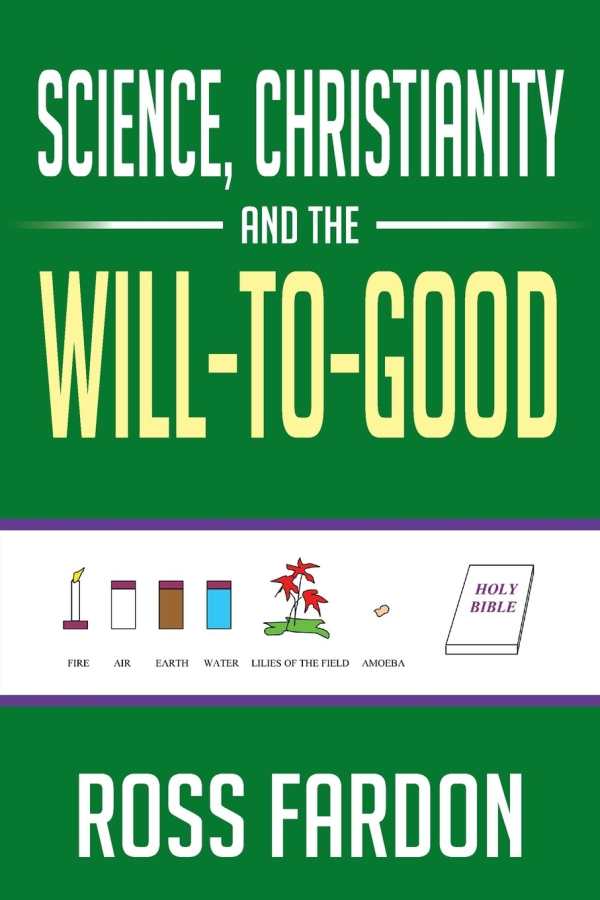
Science, Christianity and the Will-to-Good
Fardon deserves a place among the notable new atheist writers with this intelligent book.
Ross Fardon, a leader in Australia’s energy and technology industries who once pursued a career in ministry, draws from a lifetime of studying religion and theology to argue against the usefulness of religious belief in the modern world. An erudite, often harsh, tone marks the text of Science, Christianity and the Will-to-Good, which vacillates between insight and recommendation with interesting results.
Fardon starts with a blunt concept: while many religious people today seem to mean well (he dubs the liberal amongst them as “Bible-lite”), their beliefs are at best a relic of a more brutal time and have no place in a world where science can be relied upon for truth. With verifiability as the arbiter of worthwhile ideas, Fardon proceeds to weed out useful ideas from empty, even dangerous, ones. Christianity fares worst in his estimation.
Fardon proves well-read in theology, history, and the sciences, attacking biblical literalism with the same ferocity and intelligence with which he lauds scientific advancement—quite apart from the influence of Christian leaders, whom he accuses of clinging to bright ideas destined to fail in the real world. His critiques of the Bible are severe and familiar: he rejects the violence it takes for granted, and goes on lengthy explorations of theodicy with its texts as a basis, particularly as it relates to eternal punishment and collective worth. Ultimately, he rejects the idea that Jesus could represent a God of mercy, not only because his parables are, Fardon claims, sometimes illogical, but because his miracles were limited and his concepts of punishment downright cruel.
The intelligence of Fardon’s prose and his willingness to appreciate the good that believers do, even if considering their beliefs foolish, earns him a place among the more notable new atheist writers. He may prove vulnerable to outside arguments where he insists on his interpretations—for example, his rejection of biblical criticism as a valuable or meaningful field of inquiry. Moreover, hyperbolic comparisons to Hitler and Nazism that crop up at the end threaten to undermine the credibility and relatability of the rest of the text.
Still, the pervasive tone of the book is sympathetic, and Fardon overall is a reasonable, if polarizing, critic of modern religions. Though the author suggests that religious believers will reject his arguments out-of-hand, they’re worth engaging with, even for those comfortable in their beliefs; no one is ever worse for considering strong opposing positions. Where Fardon is most even, he proves to be an approachable, thought-provoking voice for those living beyond belief. This is one of four books and twenty-three essays the author says he’s publishing together “as one systematic view of life.”
Reviewed by
Michelle Anne Schingler
Disclosure: This article is not an endorsement, but a review. The publisher of this book provided free copies of the book and paid a small fee to have their book reviewed by a professional reviewer. Foreword Reviews and Clarion Reviews make no guarantee that the publisher will receive a positive review. Foreword Magazine, Inc. is disclosing this in accordance with the Federal Trade Commission’s 16 CFR, Part 255.
